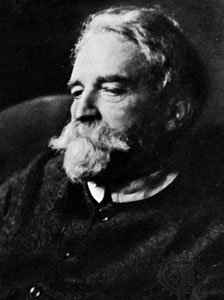Ernst, Paul
German writer
in full Paul Karl Friedrich Ernst
born March 7, 1866, Elbingerode, Saxony 【Germany】
died May 13, 1933, Sankt Georgen, Austria
 German writer known particularly for his short stories and for essays on philosophical, economic, and literary problems.
German writer known particularly for his short stories and for essays on philosophical, economic, and literary problems.Ernst studied for the ministry but quickly became disillusioned with theology. He became a militant Marxist and the editor of the Berliner Volkstribüne. He severed his Marxist connections at the turn of the century, however, and repudiated the doctrine in Der Zusammenbruch des Marxismus (1919; “The Collapse of Marxism”). He had already expressed his antagonism toward naturalism in art and called for a return to classicism in his essay Der Weg zur Form (1906; “The Road to Form”). His search for eternal truths led him through German idealist philosophy back to a form of Christianity that he dramatized in what he called redemption drama, best exemplified by Ariadne auf Naxos (1912).
Although Ernst believed his greatest literary contribution was in the theatre, he became popular through his novels and won critical acclaim only in his short stories. The autobiographical novel Der schmale Weg zum Glück (1904; “The Narrow Road to Happiness”) passed through more than 10 editions and Jugenderinnerungen (1930; “Recollections of Youth”) and Grün aus Trümmern (1933; “Green Out of Ruins”), of folkloric inspiration, were almost as popular. His most famous collection of short stories is Komödianten- und Spitzbubengeschichten (1927; “Tales of Comedians and Rogues”). Erdachte Gespräche (1921; “Imagined Conversations”) is his best-known essay collection.
- Juan Bosch
- Juan Boscán
- Juan Carlos
- Juan Carlos Onetti
- Juan Carreño de Miranda
- Juan Crisóstomo Arriaga
- Juan de Austria
- Juan de Escobedo
- Juan de Fuca Strait
- Juan de Grijalba
- Juan de Herrera
- Juan de la Cierva
- Juan de la Cueva
- Juan del Encina
- Juan de Mariana
- Juan de Mena
- Juan de Nisa Valdés Leal
- Juan de Oñate
- Juan de Padilla
- Juan de Pareja
- Juan de Valdés
- Juan Diego, Saint
- Juan Díaz de Solís
- Juan Eugenio Hartzenbusch
- Juan Fernández